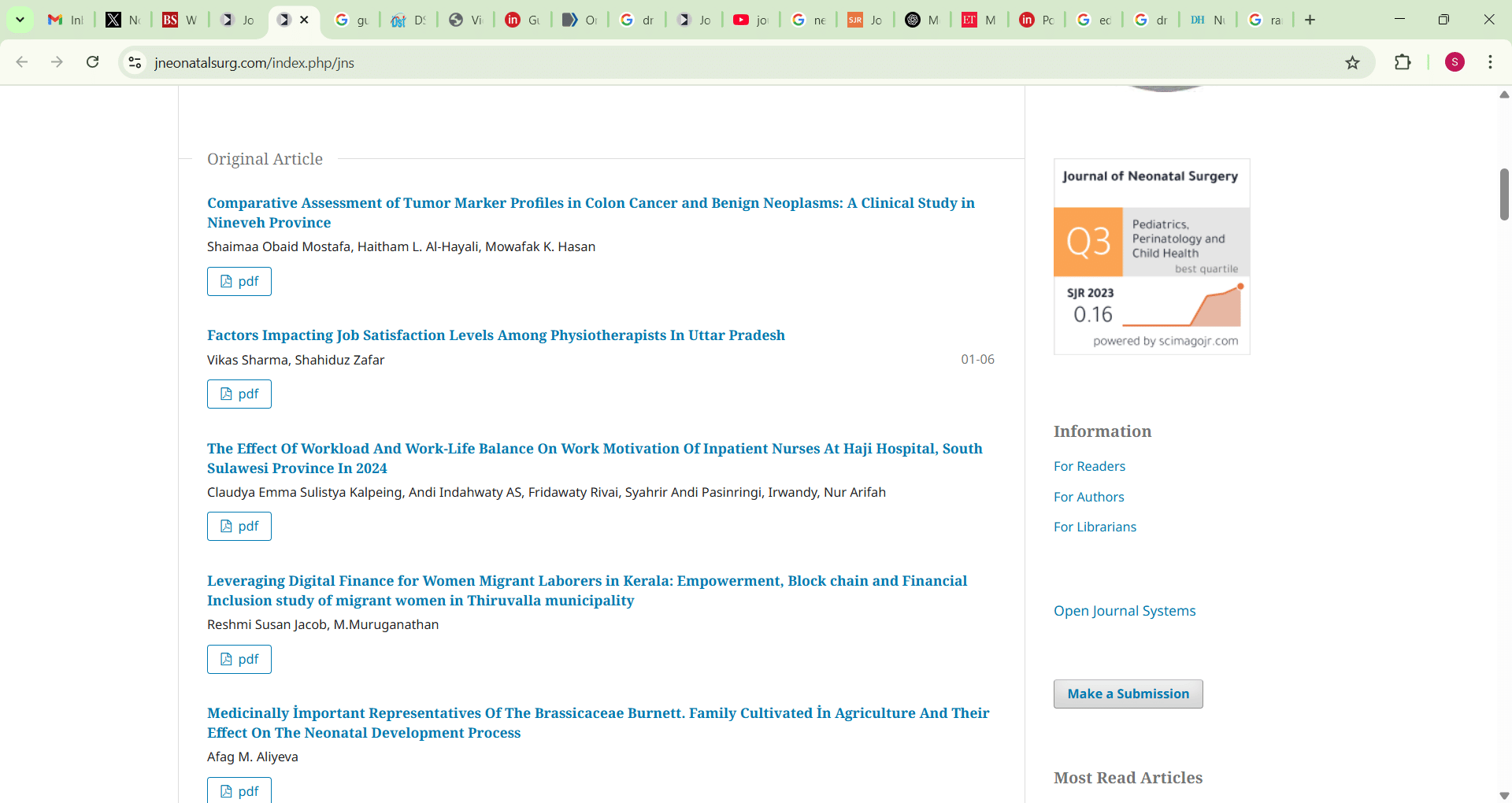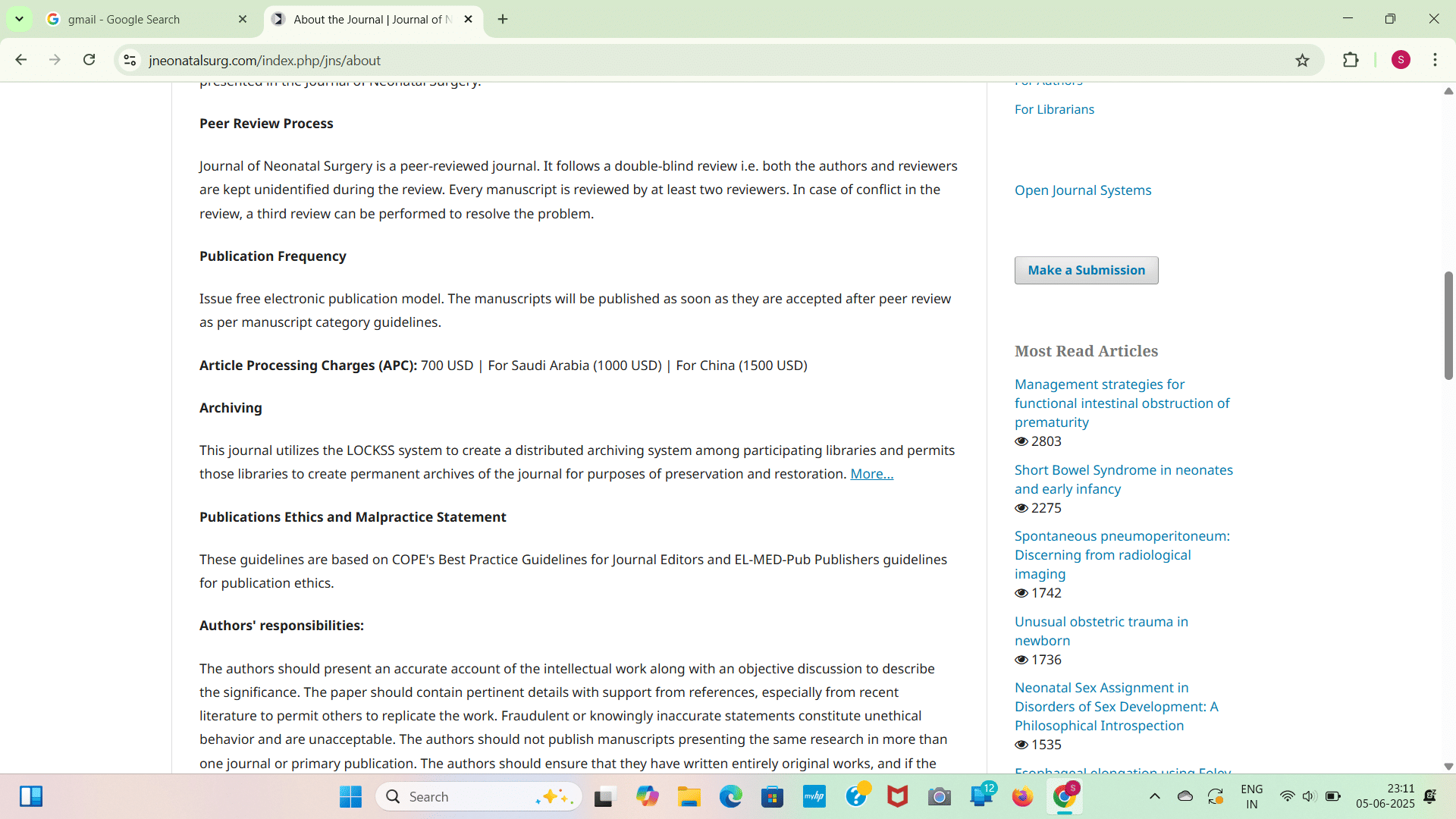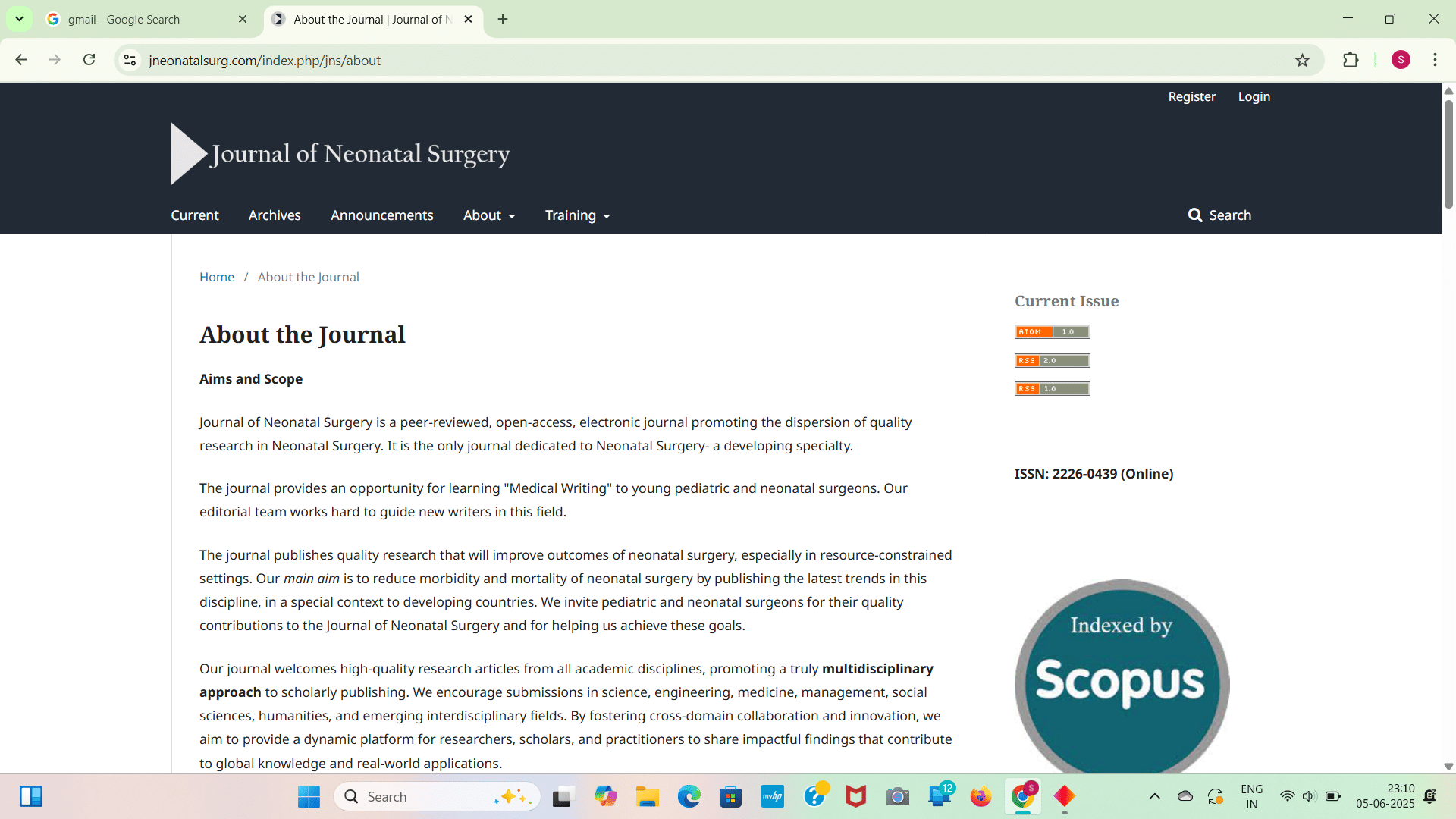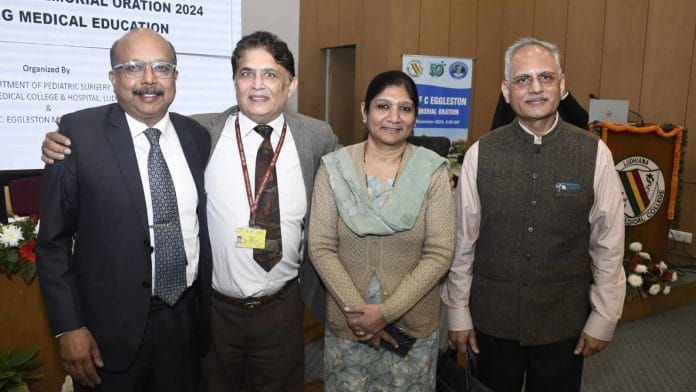New Delhi: A Pakistani doctor and an Indian doctor are at war. From long social media posts to allegations and counter-allegations, two top paediatric surgeons have been trading barbs online. At stake is the fate of a 13-year-old medical journal—and Dr Yogesh Sarin’s reputation.
The sought-after paediatric surgeon from Delhi claims that the Journal of Neonatal Surgeries—which he says he co-founded in 2012 with Pakistani surgeon Dr Muhammad Bilal Mirza—has been taken away from him. He has accused Mirza of selling the journal to a Delhi businessman in January without his knowledge.
“I gave my heart and soul to creating the journal. In fact, I was the editor-in-chief of the journal and took the major calls to shape it,” said Sarin, who is a professor in the paediatric surgery department at Lady Hardinge Medical College, who also consults at various government hospitals. Known for his soft-spoken, calming presence that puts parents and children at ease, Sarin’s voice now rises with anger, betrayal, and sorrow when he speaks of the journal—and his former Pakistani friend.
Mirza denied these allegations. Dr Sarin was never a partner, only an “employee” who was brought on board to help shape the journal, he told ThePrint in an email interview.
The absence of a formal MoU or signed agreement has further muddied the waters, with friends and colleagues taking sides.
“I was the sole owner of the journal,” Mirza added, defending his right to sell the domain rights to anyone.
The losers in this cross-border battle for ownership are researchers, especially those from the subcontinent. The Journal of Neonatal Surgery was the world’s first medical journal dedicated exclusively to neonatal surgeries, procedures, and outcomes. Its first edition was published in 2012. But since it was sold a few months ago, Sarin and several contributors allege that the journal has become predatory, demanding fees to publish papers. It has been delisted from the Directory of Open Access Journals (DOAJ) for failing to adhere to best practices.

This is a worrying trend at a time when Indian academic research is under increasing scrutiny, with high rates of retractions for plagiarism and duplication.
Instead of staying focused on neonatal surgical research, the JNS website now invites papers across all domains—including “management, social sciences, humanities, and interdisciplinary studies. Many doctors and former contributors allege that journal is now publishing research with minimal scrutiny or editorial oversight.
“JNS has been kidnapped and sold,” said Dr Raveenthiran Venkatachalam, a Chennai-based paediatric surgeon and founding associate editor of the journal.
The credit war
Over the past few weeks, between long surgeries and OPD consultations, Dr Sarin has been actively disassociating himself from the journal.
“It was a partnership in good faith, and he (Mirza) decided to break that trust,” said Sarin, who wrote the journal’s first editorial, oversaw its indexing with Scopus and PubMed, and helped build its reputation in global paediatric circles.

Sarin was formerly professor and head of paediatric surgery at Delhi’s Maulana Azad Medical College (MAMC) and medical superintendent of Lok Nayak Hospital, before becoming medical director of Lady Hardinge Medical College.
“Up until I was editor-in-chief, I ensured that the quality of the journal was maintained. But in the last year or so, I got caught up with my duties here and could not be as involved,” Sarin said, who was editor-in-chief until 2019.
Mirza sold the domain of the journal in January, but Sarin claims he only learned about it through a colleague in May. A few frantic calls and WhatsApp messages later, Sarin posted a detailed note on Facebook, disassociating himself from the journal’s new practices.
“With very heavy heart and hurt, I wish to inform you that my Pakistani counterpart, Dr Bilal Mirza, has sold the domain of our Journal of Neonatal Surgery to a private party without my knowledge,” the post read. “It is publishing any trash about all medical topics,” it added.
Former colleagues have rallied around him.
“It really pains me to see this fate of the journal. I am witnessing many sad things happening in academic medicine and this is yet another,” said Dr Venkatachalam.
Sarin said Mirza first approached him at a medical conference in 2010, asking to co-create a unique journal for South Asian neonatal surgeons. Mirza had half of Sarin’s experience and followed him around, urging to work together.
The next few months were spent planning the course across borders. Sarin became editor-in-chief. His name lent the journal credibility. Mirza, however, said he is shocked by the allegations. He insisted Sarin was a “friend and mentor”—just not a co-owner.
“When I was about to start the journal, I shared the idea with many friends, including Prof Sarin. He was very much part of the team,” Mirza told ThePrint. But there was “only one owner [and] that was me.”
“Working in an editorial team and owning a journal are different,” he said.
The exchange between the two surgeons reads like a bitter divorce.
“Ownership is a legal term,” said Mirza. “I am the one who started it, purchased the domain in my name without any sharing, paid DOI (Digital Object Identifier) charges, paid for copy editing, webs maintenance, and indexing. So naturally, I would be the legal owner.”
Predatory practices of JNS
The only thing both men agree on is that JNS has become predatory since the sale. Its delisting by DOAJ was a painful blow for contributors. Journal indexing enhances visibility, credibility, and discoverability.
In 2023, PubMed also withdrew its recognition of the journal for not adhering to quality standards. At the time, Dr Sarin was not its editor-in-chief.
Red flags were raised when the new management began demanding money from authors.

Dr Debalina Karmakar, a member of the Royal College of Surgeons of England (MRCS), said she was contacted in January 2025 and asked to pay Rs 32,000 to publish her paper—which had been rejected by the old board in June 2024.
“It seemed fishy,” Karmakar said.
Mohammed Al-Amr, an associate professor of mathematics at University of Mosul, Iraq, said in a post on X that JNS was a red flag that Scopus ignored.
Unbelievable! @Scopus missed a red flag with the Journal of Neonatal Surgery. @DOAJplus delisted it on 20-Jan-2025 for not adhering to best practices, yet Scopus indexed 231 papers in 2025—over 6x the 2024 count! Time for Scopus to step up and ensure quality control. pic.twitter.com/m2fGRNz50k
— Mohammed Al-Amr ?? (@mohd_alamr) March 12, 2025
ThePrint reached out to the new JNS management and editorial board with a detailed questionnaire, but received no response.
The updated JNS website now charges article processing fees (APC) of $700 for general authors, $1,000 for Saudi researchers, and $1,500 for Chinese authors. Previously, the process was merit-based and free.
“I never charged a penny in the last 13 years,” Sarin said.
Back in Lahore, Mirza has also advised colleagues to avoid submitting to the journal.
India vs Pakistan
There are moments when Sarin wonders if politics and the rising tension between India and Pakistan soured the relationship.
“I don’t know why he backstabbed me with such impunity. I want to believe this isn’t an India-Pakistan matter, because he made the sale much before the recent tensions,” Sarin said, referring to the Pahalgam terror attack and Operation Sindoor.
Still, he is preparing to fight. He is exploring legal options and studying the terms of domain sale.
“I will go after these guys for sure. I won’t let my reputation and work be dragged into the mud,” Sarin said, before rushing off to do what he does best—save lives.
(Edited by Prashant)






